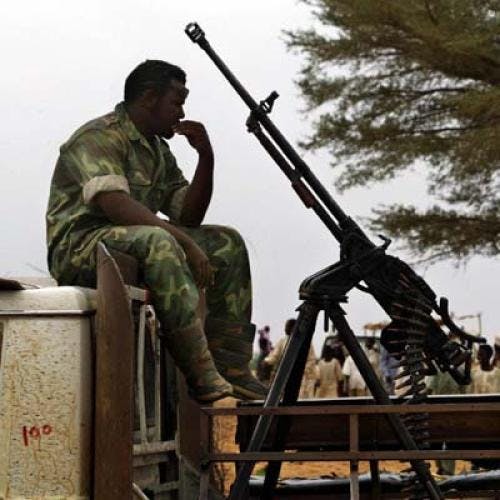
JUBA, THE SUDAN--Khali al-abidyakul al-abid—"Let the slave eat the slave," goes an old Sudanese saying from the 19th century, when Arab slave merchants dominated southern Sudan by pitting one black African tribe against another. Now
The SPLA's strategy is to destroy the government's capacity to govern in the huge and already impoverished southern half of the country. It has succeeded in gaining control of most of the south, confining government troops and officials to a few remaining outposts like Juba, the provincial capital of southern Sudan, 800 miles south of Khartoum. But hunger and indiscipline among the SPLA's 30,000 mostly illiterate rank and file have led to widespread looting and pillaging, effectively destroying not only the government's ability to govern the region but the people's ability to live in it. The rebels, like the government, have used food as a weapon, destroying crops and then blocking humanitarian efforts to deliver famine relief.
The government of Prime Minister Sadiq al-Mahdi, meanwhile, is waging a proxy war. In what looks like a repeat of the divide-and-rule strategy of the slave trading days, it has created tribal militias, providing high-powered weapons and ammunition to traditional ethnic rivals of Sudan's largest southern tribe, the Dinka, who predominate in the SPLA. These modern weapons, nominally provided for self-defense against the SPLA, have ratcheted up the stakes of age-old ethnic competitions over land and cattle—conflicts that until only a few years ago were waged with sticks and spears and settled through negotiation by tribal elders. Now they are waged with automatic assault rifles and hand grenades, in an escalating cycle of attack and revenge that has led some Sudanese to speak of the "Lebanonization" of southern
Among the earliest southern tribes to be armed by the government were the Mondari, pastoral nomadic cattle herders like their Dinka neighbors, with similar physical features. They are exceptionally tall and thin, and pitch black, with decorative scars on their foreheads. The Mondari have a reputation as a warrior tribe. Even now, amid famine, what little food is available is said to go first not to the women and children but to the young Mondari men, the warriors, on whom the rest depend. And even now the men look fit. On Christmas Day the young Mondari men, having evidently set aside their automatic weapons, dressed in leopard skins and gaudy sashes and paraded through the streets of Juba waving flags, blowing whistles, chanting traditional African call-and-response holiday greetings, and staging wrestling matches in a downtown square.
Depending on who is reciting the history of what followed after the government armed the Mondari in 1983, the Mondari either raided neighboring Dinka for their cattle or resisted SPLA raids, and the fighting continued for two years. The Mondari finally retreated with their cattle to the outskirts of
Most of
On quiet nights during the current dry season, when the rebel siege has eased, it's possible to share a meal in a lightless thatched-roof caf6 with middle-aged veterans of the old Anyanya guerrilla movement, which sought to liberate the south of
The irony is that most southerners readily identify with the cause of the SPLA. All share the ancient and deeply held grievances of the African south against the dominant Arab north. But from this vantage point the larger issues in the war seem increasingly remote. One hears a lot of talk about how there are "no good guys," in this war, that "both sides are to blame."
For nearly six years, the government's cynical strategy of divide and rule has, in effect, been a substitute for bargaining in good faith with the SPLA. Despite
Last Christmas Day, at least,
BILL BERKELEY is a New York-based journalist who has written frequently about